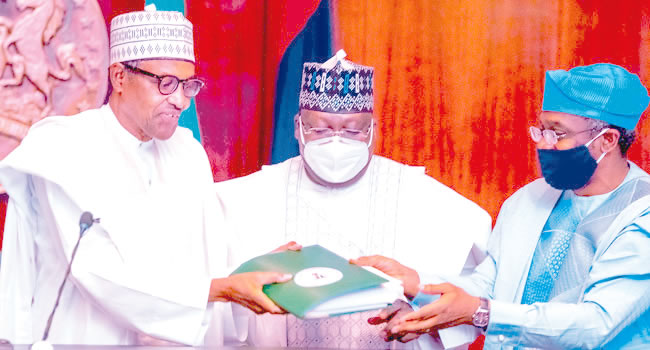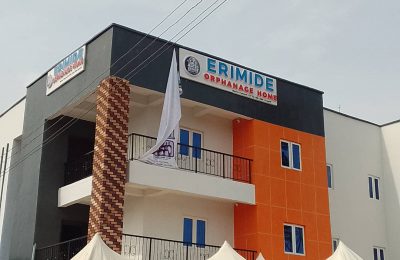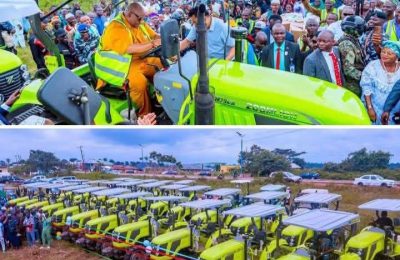

As the countdown to the expiration of the eight years tenure of President Muhammadu Buhari begins, KUNLE ODEREMI and TAIWO AMODU examine the issue of electoral reform under his administration.
GIVEN his tortuous route to achieving his life-time dream of becoming a civilian president, there were pervasive expectations in 2015 that President Muhammadu Buhari would implement far-reaching reforms in the nation’s electoral system. Buhari, who ruled the country as a military head of state between 1983 and 1985, had blamed his fall in the presidential contest on three consecutive election cycles as becoming president, on gross abuse of the electoral process.

Though he did not expressly make electoral reform a cardinal programme during the campaign for the 2015 general election, he inherited an amalgam of recommendations contained in reports of the 2014 Constitutional Conference organized by his predecessor, Dr Goodluck Jonathan, as well as other bodies facilitated by the federal government and key stakeholders in the Nigerian project, aimed at cleaning up the electoral system and taking it to the standard practice in advanced and popular democracies in the world. Also, the Justice Muhammadu Uwais Committee made far-reaching recommendations aimed at improving the electoral process and environment; strengthening the legal frameworks and enhancing the independence of INEC. These were some of the issues he inherited that should have preoccupied his mind based on circumstances that surrounded his previous attempts at becoming president. It should be recalled that Buhari set up a 25-man electoral reforms committee in October 2016 with a former president of the Senate, Senator Ken Nnamani to look into possible amendments to the constitution and the electoral act with the aim of producing a more robust and generally acceptable electoral system. The report of the committee remains on the shelf gathering dust. One fundamental recommendation contained in the Justice Uwais committee report was that no elected person should assume office until the case against him/her in the tribunal or court is disposed of. Today, the issue is on the front burner as the tribunal grapples with petitions filed by aggrieved candidates in the 2023 general election with less than two weeks to the change of guard at federal and subnational levels.
Some of the key issues that Buhari needed to address frontally as president towards boosting public confidence in the electoral system included rigging and other malpractices that cast a slur on the integrity of polls, including the general election that brought him to the Presidential Villa in 2015. The shortcomings also included vote-buying and selling by unscrupulous politicians; with the government declared the most guilty through its TraderMoni economic intervention. In his review of the 2019 elections, for example, Head, Transparency International in Nigeria, Mr Auwal Rafsanjani , had declared that, to many Nigerians, “This is clearly a case of vote-buying using public funds which goes contrary to our Constitution and to having a free and fair election.” But, in defence of the TraderMoni, a top government functionary had faulted the critics of the last-minute TraderMoni scheme at the dawn of an election, insisting that, “This is a programme that has affected millions of lives.”
Another sour point in the management of the 2019 elections under Buhari was what most observers described as the undue militarisation of the electoral process, mostly in the stronghold of opposition parties. Coupled with this was the use of thugs at polling units in parts of the country, in the presence of law enforcement agents. In fact, a report on the elections by the Reuters claimed: “There were reports of voter intimidation and violence around the 2019 elections at both federal and state levels, including the armed men hired by candidates and political parties and by security forces, including the national police.”
The view was corroborated by the Human Rights Watch, which called on President Buhari to fix problem before the 2023 elections. But, the elections have come and gone with the bill for the establishment of agencies to tackle electoral offences still in the closet in the National Assembly at the threshold expiration of the Buhari administration. Those shortcomings almost made some significant strides paled into insignificance the impact of the introduction of modern technology into the electoral system by the Independent National Electoral Commission (INEC).
Bright spots
At the end of eight years of the Buhari administration, which critics have since dismissed as uneventful, the president can proclaim that his government made remarkable landmarks in the area of electoral reform towards inspiring sanity in the electoral process. The amendment of the Electoral Act 2022 stood him out as walking his talk to promote internal democracy in political parties and the outcome of general elections. It would recalled that having lost elections to emerge as President in previous attempt, two in the defunct All Nigerian People’s Party (ANPP) and one in the defunct Congress for Progressive Change, (CPC), Buhari had reportedly confided in his loyalists that he would bequeath a legacy of sound electoral process in the country after his 2015 victory on the platform of the All Progressives Congress (APC). It was learnt that in the 8th National Assembly, attempts to amend the Electoral Act met with stiff resistance from the Executive arm of government owing to the frosty relationship between the Bukola Saraki and Yakubu Dogara-led National Assembly, on one hand and the Buhari presidency.
The then president of the Senate, Dr Bukola Saraki and Speaker, House of Representatives, Honourable Yakubu Dogara, had made attempts to introduce electronic transmission of results in the Electoral Act but President Buhari denied the amended legislation the crucial Presidential Assent at the last minute.
In a letter addressed to the leadership of both chambers of the National Assembly dated December 7, 2018 through his senior legislative aide, Senator Ita Enang, President Buhari said passing a new bill with elections close by could ‘create some uncertainty about the legislation to govern the process.” He also highlighted some parts of the bill that he said need legislative action.
Buhari also claimed that the amendment to the Act which proposed a change in the order of dates for the general elections would usurp the constitutional powers of Independent National Electoral Commission (INEC) to decide on election matters, including fixing dates and election order.
His letter had read in part:” Pursuant to section 58 (4) of the Constitution of the Federal Republic of Nigeria 1999 as amended, I hereby convey to the House of Representatives my decision on 6th December 2018 to decline presidential assent to the Electoral (Amendment) Bill, 2018 recently passed by the National Assembly. I am declining assent to the Bill principally because I am concerned that passing a new electoral bill this far into the electoral process for the 2019 general elections which commenced under the 2015 Electoral Act, could create some uncertainty about the applicable legislation to govern the process. Any real or apparent change to the rules close to the elections may provide an opportunity for disruption and confusion in respect of which law governs the electoral process.”
Electoral Act 2022 (as amended)
In the 10th National Assembly under the leadership of Ahmad Lawan and Femi Gbajabiamila as president of the Senate and House Speaker, respectively, agitation for electoral reforms, championed by opposition parties and Civil Society Organisations (CSOs) received the needed boost. After several face-offs between the Parliament and the Executive, Buhari gave his presidential assent to the Act which allows transmission of results from the polling booths to the INEC server.
INEC initiative towards mitigating electoral heist, the Bimodal Voters Identification System, (BVAS) and INEC Results Viewing Portal, (IReV) also got the much sought after legislative protection.
However, Buhari had only given his assent to the Bill after he had initially rebuffed certain provisions in the Amendment Act, which he noted was in conflict with provisions of the 1999 Constitution and inimical to promotion of internal democracy in political parties.
Nigerian Tribune checks showed that Section 84(12) of the Electoral act 2022 was the cause of a cold war between the federal lawmakers and serving governors, particularly APC governors. The provisions of the section make it ineligible for political appointees to be automatic delegates to party congresses and conventions. It provides: “No political appointee at any level shall be a voting delegate or be voted for at the convention or congress of any political party for the purpose of the nomination of candidates for any election.” Section 84 (8) of the amended Electoral Act also stipulates the implication. It reads: “Where a political party fails to comply with provisions of this Act in the conduct of its primaries, its candidate for election shall not be included in the election for the particular position in issue.”
But, the lawmakers in both chambers of the National Assembly lost out in the battle for the direct primaries as the only option for political parties to pick their candidates in general elections. President Muhammadu Buhari in a letter addressed to the president of the Senate and chairman of the National Assembly rejected the resolution of the National Assembly which gave direct primary as the sole option open to political parties to pick their candidates. While rejecting the Bill, he cited the high cost of conducting direct primaries, the security challenge of monitoring the election, violations of citizen’s rights and marginalisation of small political parties.
President Buhari also noted that adopting Direct Primaries also has implications on the rights of citizens to participate in government as constitutionally ensured. President Buhari further maintained that proceeding with direct primaries would lead to a significant spike in the cost of conducting elections by parties as well as an increase in the cost of monitoring such elections by INEC. He further raised concern on the indirect consequences of the high cost and monetization of the process as it will increase the financial cost and put further strain on the economy.
In his view, it will also strangulate smaller parties financially, considering the enormous resources required in mobilising all party members for the primaries. He submitted that such a situation is not healthy for the sustenance of multi-party democracy in Nigeria. He further declared that security agencies will also be overstretched as direct primary will be open to participation from all and sundry and such a large turnout will lack effective security coordination, engender intimidation and disruption, thereby raising credibility issues on the outcome of such elections. He said: “Significantly, the amendment as proposed is a violation of the underlying spirit of democracy which is characterised by freedom of choices. Political party membership is a voluntary exercise of the constitutional right of freedom of association.” He also said the proposed amendment will lead to a plethora of litigation based on diverse grounds and issues of law, including but not limited to the fact that the proposed amendment could not work in retrospect, given the existing constitutional provisions of parties already registered with the INEC which permit direct, indirect and consensus primaries.
In about two weeks from now, the curtain will be drawn on the two terms of four years each of President Buhari. Thereafter, history will be left to judge his actions and possible inactions on the kind of legacy he bequeaths on ways at improving the nation’s electoral system or otherwise.
READ ALSO FROM NIGERIAN TRIBUNE








